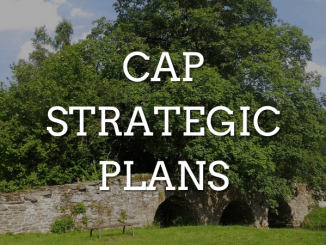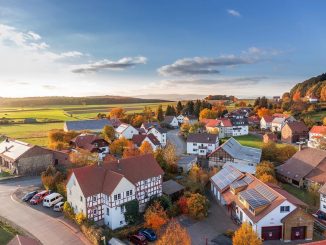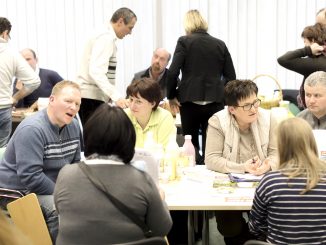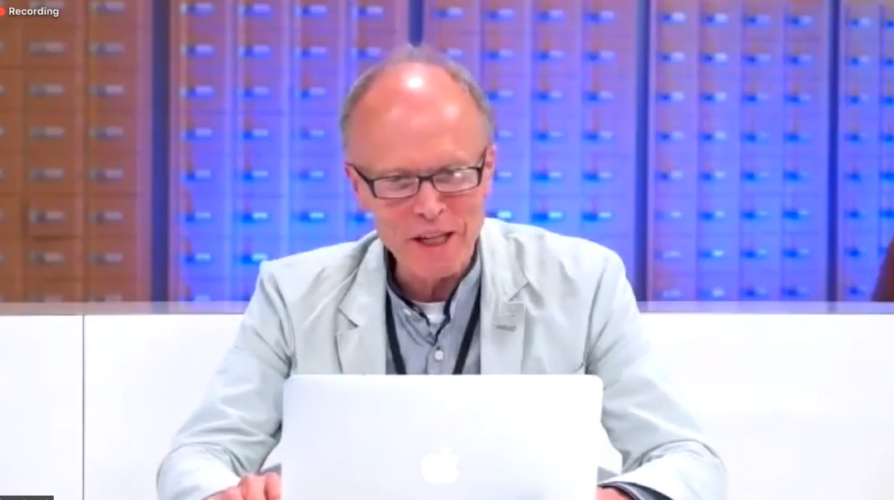
At last week’s A Vision for Rural Europe web conference, Commission President Ursula von der Leyen announced an EU wide public consultation on the future of rural areas. This will be a “participatory process” which will be “a great opportunity for rural communities all across our continent to have their say. The COVID-19 pandemic has called into question our direction and we need to see rural as a solution” according to the Renew Europe group, which organised the event with support of ARC2020. This consultation is expected to begin in the Autumn. Below we summarise the core civil society contributions to the event, and give some background info on the process – formal and less formal, for the upcoming rural consultation.
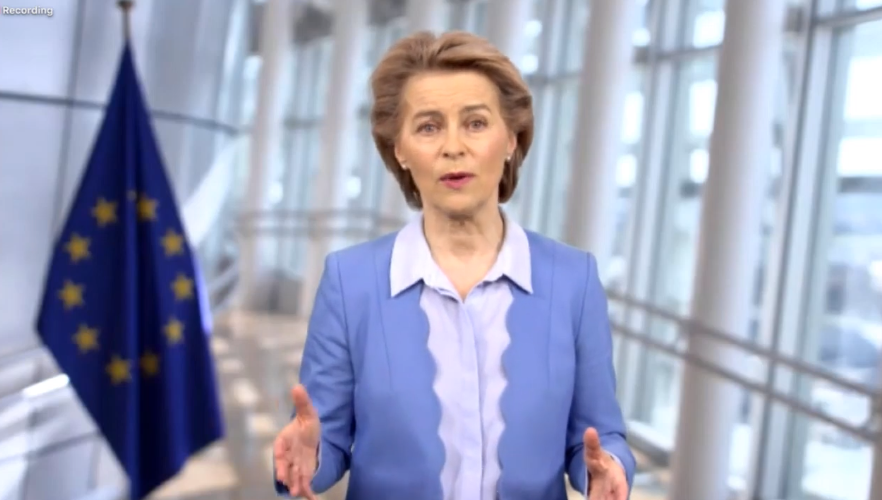
Rural Civil Society Speaks
ARC2020 mobilised the civil society component for the rural europe web conference. This saw speakers representing social farming, intergenerational cooperation, sustainable communities, inclusive digitalisation, and aspirations of civil society in EU accession countries. Emilija Stojmenova Duh (University of Ljubljana and 4PDIH) emphasised how “instead of following the trends and catching up with the technological development of the rest of the world – Europe should and must identify its strengths and build on them.” Agriculture has lots of multifunctional growth potential, but rural areas in general can harness the best of intergenerational assets. Digitalisation as a means to sustainable rural living and working is key – more so post covid19.
What is now needed is change of the mindset of the local and national authorities and the EC – to move from »do what we believe is right« to »we listen to you, we trust you and we would like to provide opportunities and support you to uptake your ideas.« Emilija Stojmenova Duh
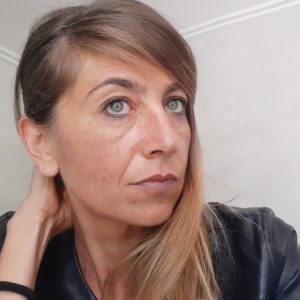 Ilaria Signoriello (Agricoltura Capodarco and Social Farming National Forum Italy) spoke of social farming. This is the set of practices carried out by farms, social cooperatives and other Third Sector organizations in cooperation with the social-health services and the competent public bodies of the territory. Agriculture and multifunctional production processes are combined with social activities to generate “inclusive benefits, favouring therapeutic, rehabilitation and care pathways”: these new pathways help better integrate marginalised and disadvantaged groups into society. This makes social farming “a model of participatory and relational territorial development”, one which “re-orientates local realities in the logic of service to the communities of reference”. Social farming is about more than just production, it is “something completely new and more articulated.”
Ilaria Signoriello (Agricoltura Capodarco and Social Farming National Forum Italy) spoke of social farming. This is the set of practices carried out by farms, social cooperatives and other Third Sector organizations in cooperation with the social-health services and the competent public bodies of the territory. Agriculture and multifunctional production processes are combined with social activities to generate “inclusive benefits, favouring therapeutic, rehabilitation and care pathways”: these new pathways help better integrate marginalised and disadvantaged groups into society. This makes social farming “a model of participatory and relational territorial development”, one which “re-orientates local realities in the logic of service to the communities of reference”. Social farming is about more than just production, it is “something completely new and more articulated.”
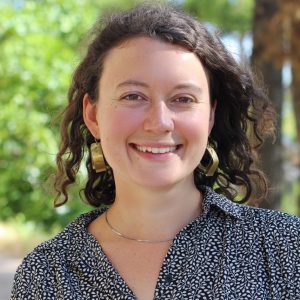 Francesca Whitlock (ECOLISE and GEN Europe) emphasised how community-led initiatives are creating thriving spaces of cross-sectoral innovation in rural areas, responding to food, climate, economic and demographic challenges in an integrated way. They must be properly funded and supported by policies that make space for community- and local-led innovation.
Francesca Whitlock (ECOLISE and GEN Europe) emphasised how community-led initiatives are creating thriving spaces of cross-sectoral innovation in rural areas, responding to food, climate, economic and demographic challenges in an integrated way. They must be properly funded and supported by policies that make space for community- and local-led innovation.
“In this unique moment we have an opportunity to create a just recovery from the crisis that centres rural areas as potential hubs of cross-sectoral innovation, responding to social, economic, ecological and cultural crises in a holistic manner”” the Ecolise co-president noted. Thousands of local community-led climate and sustainability initiatives attest to this, while also acting as “successful blueprints” for a just transition.
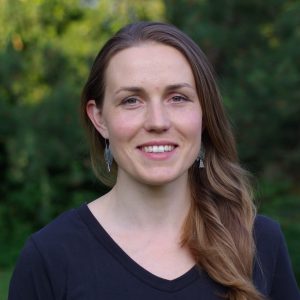 Katrina Idu (Latvian Rural Forum and European Rural Youth Parliament) said that rural areas are facing depopulation and aging population issues- but attracting young people is not only a question about demographics, it is about new energies, youth inclusion and intergenerational cooperation in rural areas.
Katrina Idu (Latvian Rural Forum and European Rural Youth Parliament) said that rural areas are facing depopulation and aging population issues- but attracting young people is not only a question about demographics, it is about new energies, youth inclusion and intergenerational cooperation in rural areas.
She pointed out the changing lifestyles needs of people interested in living in rural areas: some are newcomers, some returners, others multi localists – these can be a new resource for new energies.
Rural areas can reflect the complexities of new needs for quality living spaces.
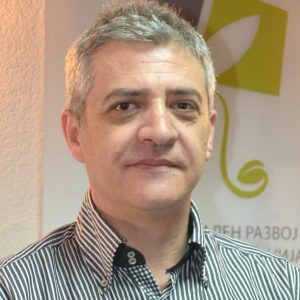 Petar Gjorgievski (Rural Development Network of North Macedonia and Balkan Rural Development Network) spoke of the western Balkans, and how much the accession states have to offer, not only in agricultural production of the large scale farms but also in the traditional food production, tourism and services of small family farms that cover the majority of rural areas. These rural households are diversified and spread over beautiful and very diverse landscapes presenting a number of opportunities for economic and social growth, also offering a variety of products and services to the consumers.
Petar Gjorgievski (Rural Development Network of North Macedonia and Balkan Rural Development Network) spoke of the western Balkans, and how much the accession states have to offer, not only in agricultural production of the large scale farms but also in the traditional food production, tourism and services of small family farms that cover the majority of rural areas. These rural households are diversified and spread over beautiful and very diverse landscapes presenting a number of opportunities for economic and social growth, also offering a variety of products and services to the consumers.
He focused on moving past the deadlock in the EU integration process, which itself negatively impacts the development of rural areas. The pre-accession process and LEADER measures are good prerequisites but more is needed.
Full event can be watched below
https://www.facebook.com/RenewEurope/videos/596814194567518
How we Got to Now
The Vision for Rural Europe event builds upon previous work:
- Our own Rural Dialogues series, where a wide set of ideas and practices, of regions and revitalisations, were presented.
- The visions and policy proposals for Rural Europe, drawn from civil society organisations including the European Rural Parliament; RED, ELARD, PREPARE, Forum Synergies and many more, and including studies of our own work.
- The initiative of former Commissioner Ciolos, as expressed at the “Rural Europe: which way to go?” event in January this year in the European Parliament.
- EU strategies already under way. With fresh eyes and open minds, we will examine and critically integrate aspects of the EU Green Deal, including the Farm to Fork, Biodiversity and Sustainability strategies, as well as the ongoing CAP reform process.
ARC2020 has also helped formulate a working vision and strategy document for to build momentum from civil society for a more inclusive engagement with rural Europe.
This document –Vision and Strategy for a Transition towards a more “resilient, sustainable and fair Europe” focuses on:
Partnership, rural digitalisation, the rural dimensions to the EU Green Deal and its sustainability strategies, in particular farm to fork and a just transition. The emphasis is on making the process of rural inclusion in planning for our common futures an empowering one, with immediate and long term impacts, inclusive of the EU’s immediate neighbours.
Conditions must be put in place for this participatory process to occur: better governance, especially with regard to the CAP Strategic Plans; a long term rural task force, and strategic investment will aid a just and fair ‘rural-proofed’ transition.
There are also a set of proposals for first steps in the next programming period, including genuine and useful simplifications – for example a one lead fund and harmonised one stop shop solutions – which can be read in more detail in the PDF of the working document or at the web article itself.
Next Technical Steps
1. The instrument of an online consultation with stakeholders and CS is being discussed now, similar to the one on the CAP and Strategic Plans of Member States. This process is foreseen for the Autumn 2020 (September/October)
2. A Foresight Analysis, led by the Joint Research Center (JRC) will take place as part of an ENRD Thematic Group (TG).
3. Input from other projects will most likely be sought, from projects that are carrying out multi stakeholder analyses in locations around Europe (drivers, challenges, opportunities). A conference is foreseen by one project in December 2020.
4. A major conference organised by the Commission is foreseen in the Spring of 2021 for around 500 people.
5. The publication of the Communication on the Long Term Rural Vision itself is currently foreseen for the summer of 2021 although a lot can happen on this and all the components before then.
The ENRD will have a thematic group on the long term vision which will last over this described period.
What we Need
European Institutions and Civil Society must make sure that any vision is really rooted in the very diverse needs of rural communities across Europe through real rural dialogue. Otherwise this will be again a top down communication exercise which will not motivate or inspire anyone. The AGRI Commissioner has said that the Communication “should be based on extensive consultations in particular with people living in these rural areas as well as local and regional authorities”. A multiple choice online questionnaire with preset questions does not really constitute extensive consultations.
European Institutions and Civil Society must make the Vision and Strategy for Rural Europe real and relevant NOW for all stakeholders. This is not a process that can come after the decisions of recovery finances and the other strategies have been agreed and integrated. The impression we have is that people have just come out of the consultations on the CAP Strategic Plans and recently the SWOT analysis, the Future of Europe and so on, and are tired of being consulted when there are no results on the ground. So it is essential to link the long term vision to the decisions that will be taken now in the new CAP SP, Cohesion Policy and now particularly the Recovery Plan.
Ursula Von der Leyen also says in her mission letter to AGRI Commissioner on the Long Term Vision “you will ensure that the needs of rural areas are specifically catered for in the national Strategic Plans under the new Common Agricultural Policy”. Woiciekowski has written to the Agricultural Ministers to this effect – but what does this mean in practice?
The biggest risk at the moment is that the vast amounts of money being discussed in the recovery plan go to “investment ready” demands and pet projects of big business in existing sectors from cars to airlines to tourist operators and bigger public authorities.
Rural communities, small local authorities, small farmers and businesses are not equipped to deal with the complexity of projects in fields like renewable energy and mobility, community based digital transformation, health, caring for the old, rural education under COVID, environmentally friendly housing for all, transforming the precarious and unhealthy living and working conditions of the migrants that fuel farming business, etc. These are all complex highly regulated sectors.
There is an urgent need to provide technical assistance for grassroots initiatives and hence the importance of properly equipping LEADER, CLLD and the many national and local networks dealing with energy mobility, digitalisation, etc (co-working centres, fab-labs, living labs, digital hubs, and many other community led initiatives). Where these intermediary networking organisations and support structures exist – local projects bloom.
Let’s work together on Building a Vision and Strategy
ARC2020 can not forge ahead and lead on this work alone. All interested rurally-focused organisations and initiatives must come together to build a real, genuine, inclusive and empowering consultation process. We call on our colleagues and rural partners to build upon the Vision and Strategy for Rural Europe which ARC2020 has initiated. And we must, together, find a way to support this process, in parallel to but also informing the more formal process of consultation.
More on the Vision for Rural Europe Event
Working Document on “A Vision and Strategy for Rural Europe – Now.”
Join Us in Generating a Vision & Strategy for Rural Europe – Now!


